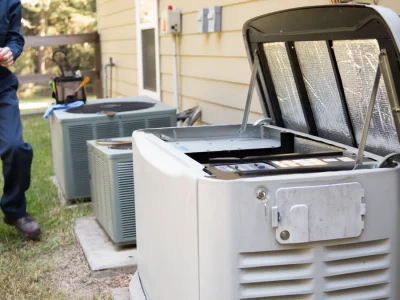Daily life transforms when families integrate professional support into their routines. Home care services provide essential assistance that extends far beyond basic medical needs. These services create meaningful connections while addressing practical challenges that individuals face in their own homes.
Modern care approaches focus on maintaining independence while ensuring safety and comfort. To exemplify, companion and personal care options at B Home Care demonstrate how structured support can enhance quality of life. Such services address both emotional and physical needs through personalized attention and skilled assistance. Let’s explore how these care options create positive changes in daily routines and family dynamics.
Social Connection and Mental Wellness
Companionship services combat isolation by providing regular social interaction and meaningful conversation. Trained companions engage clients in activities that stimulate cognitive function and emotional well-being. These interactions often include reminiscing about past experiences, discussing current events, or participating in favorite hobbies.
Mental health benefits emerge through consistent social engagement and emotional support. Companions recognize mood changes and provide gentle encouragement during difficult periods. Regular check-ins create stability while fostering trust between clients and care providers.
Personal Hygiene and Daily Living Support
Personal care assistance ensures individuals maintain dignity while receiving help with intimate tasks. Bathing, grooming, and dressing support allows people to feel confident and comfortable throughout each day. Care providers approach these tasks with respect and sensitivity to individual preferences.
Meal preparation and medication reminders become seamless parts of daily routines when integrated properly. Nutritional needs receive attention through planned meals that consider dietary restrictions and personal tastes. Medication management reduces family stress while ensuring proper timing and dosages.
Mobility and Safety Enhancement
Movement assistance reduces fall risks while maintaining physical activity levels appropriate for each individual. Care providers support safe transfers, walking, and exercise routines tailored to specific mobility needs. These activities help preserve strength and independence for as long as possible.
Home safety assessments identify potential hazards and implement practical solutions throughout living spaces. Simple modifications like grab bars, improved lighting, and clear pathways make significant differences in daily navigation. Emergency response systems provide additional peace of mind for families and clients.
Household Management and Organization
Light housekeeping services maintain clean and organized living environments that support health and well-being. Regular cleaning schedules prevent overwhelming tasks from accumulating while preserving home comfort. Laundry, dishes, and general tidying become manageable through consistent support.
Errands and transportation assistance connect individuals to their communities and essential services. Shopping trips, medical appointments, and social visits remain accessible with reliable transportation support. These services prevent isolation while maintaining important community connections and healthcare relationships.
Family Relationship Dynamics
Caregiver stress reduction allows family members to focus on emotional relationships rather than physical care tasks. Professional support creates space for quality time spent on meaningful interactions and shared experiences. Family visits become more enjoyable when basic care needs are already addressed.
Communication between professional caregivers and families ensures everyone stays informed about daily activities and any concerns. Regular updates help families feel connected while allowing them to maintain their own responsibilities. Care coordination reduces conflicts and misunderstandings about care decisions and daily routines.
Independence and Dignity Preservation
Personal choice remains central to care planning as individuals continue making decisions about their daily preferences. Care providers adapt their approaches to respect individual routines and personal values. The following aspects contribute to maintained independence:
- Encouraging self-directed activities within safe parameters
- Supporting existing skills while compensating for limitations
- Adapting environments to promote successful completion of preferred tasks
- Celebrating achievements and maintaining positive reinforcement
- Respecting personal space and privacy preferences
As a working example, companion and personal care options at B Home Care reveal how care delivery frameworks can align with both individual preferences and broader family expectations. These services address immediate needs while building foundations for sustained well-being and independence. The everyday impact includes improved safety, enhanced social connections, reduced family stress, and preserved dignity.











Comments